Inside the Dutch 'dementia village' that offers beer, bingo, and top-notch healthcare
The efforts may only yield benefits for a few years. But van Hal said the small details can mean the most, even if it's just pouring a resident the perfect cup of coffee.

It's also important for residents to go outside, research has found. Hogewey tries to encourage residents to take walks or enjoy one of the several gardens.
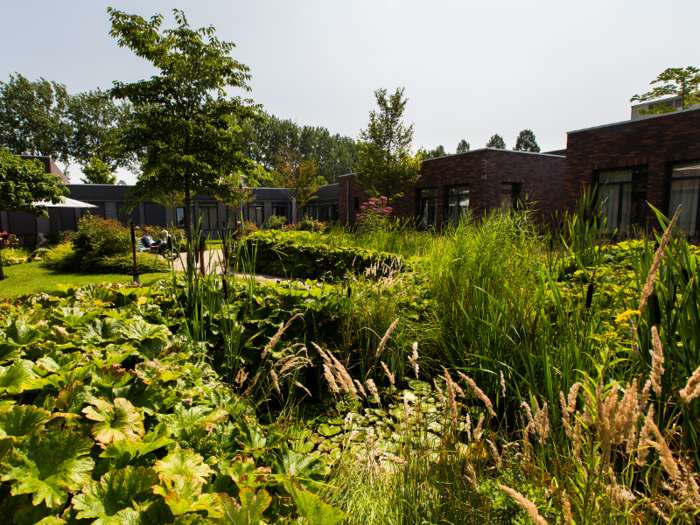
Alzheimer's and dementia sufferers are widely encouraged to stay physically active to keep their minds and bodies engaged.
Residents at Hogewey can stroll through the open courtyard or help caregivers tend to one of the many gardens. Even just sitting on a bench in the outdoors can help improve their mood and overall well-being, research has found.
Although certain homes are designed to accommodate introverts, there are a variety of social events available to residents, van Hal said. There are also bingo nights, social clubs, theater events, and plenty of chances to bump into neighbors.
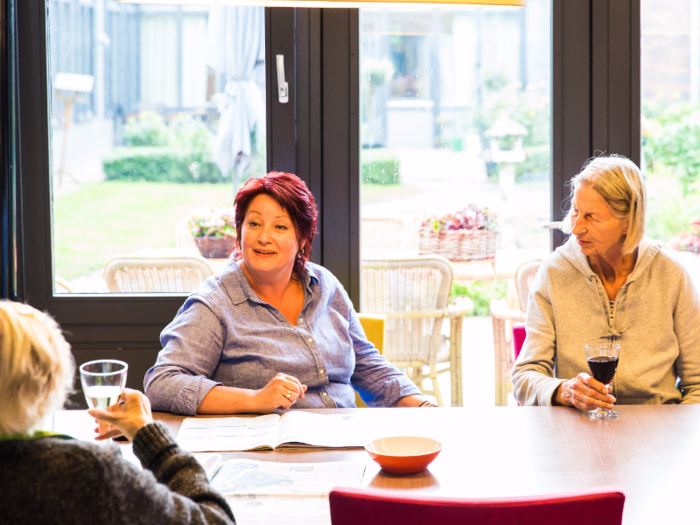
Research has found that loneliness is just as deadly as smoking and twice as lethal as obesity. As seniors tend to be the age group that most often lives by themselves, Hogeweyk feels a responsibility to make sure people get as much social interaction as they require.
"You are busy, you are outside, you can complain about the weather," he said.
The staff of medical professionals tries to cater to each resident based on their unique needs, van Hal said.
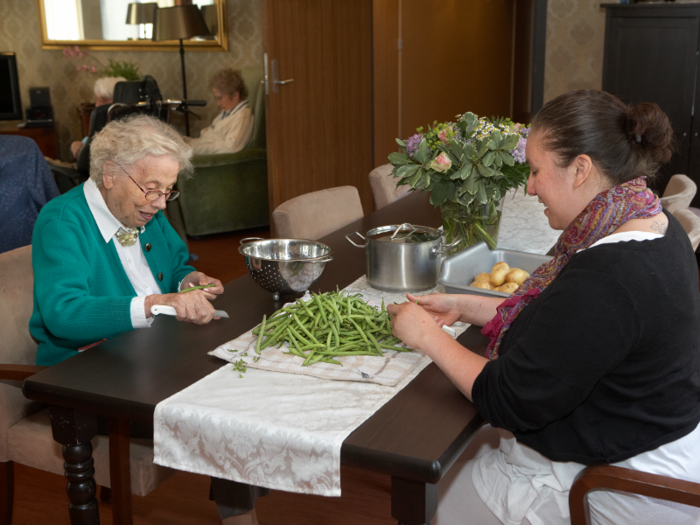
That's important for a sensitive disease like dementia, he added. There are roughly 50 million people worldwide living with dementia, which means there are an equivalent number of stages at which the disease has advanced.
It's up to the Hogeweyk staff to know which residents are more lucid than others, and to treat them accordingly if they slip up with a name or date. According to van Hal, there is no single policy for bringing residents back into "the real world" or letting them live in their bubble.
"For us it's important that we support them to experience a normal day, a day they like and a day they recognize," van Hal said.
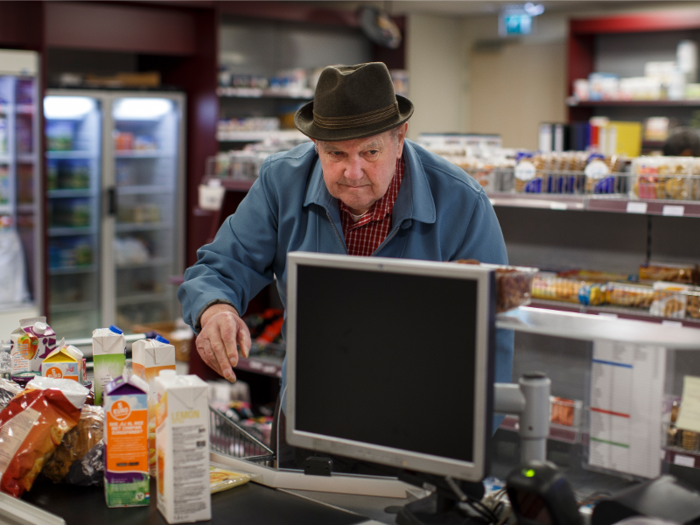
As a matter of policy, Hogeweyk rejects the idea that people with dementia ought to miss out on the finer things, such as beer or wine — even if they don't follow the social norms that most other people do.
"They have really bad manners and habits, in food and behavior," he said. "We are not going to change that."
Residents can use real money at the facility's pub. If people display signs of alcohol abuse, however, the facility will not serve them.
Hogeweyk caregivers and house attendants use an in-house currency to help their residents buy groceries at a fully-functional supermarket.
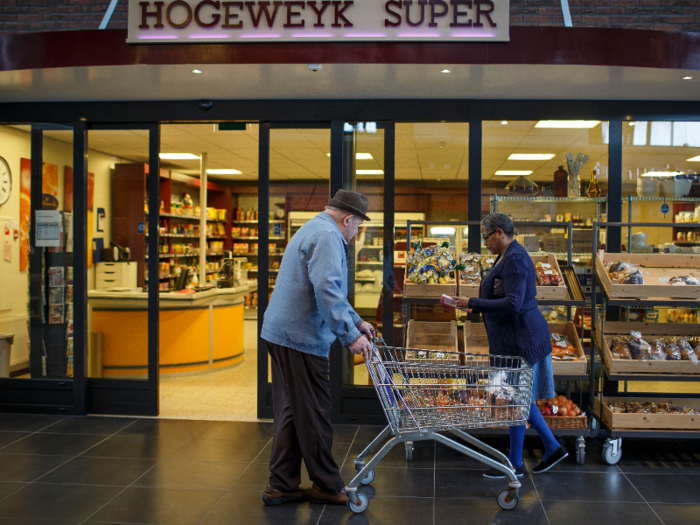
The residents can also use real money if they want to, Hal said. Only a handful are lucid enough to do so, and typically they spend it on small items like toothpaste and candy bars.
As part of the facility's normal budgeting process, a chunk of money (not real currency) is doled out to each of the 23 houses. With some help from the caregivers, it's up to the houses to budget the money how they see fit over the course of the month.
Staff at Hogeweyk are trained to focus on highlighting what residents can do, not what they can't.
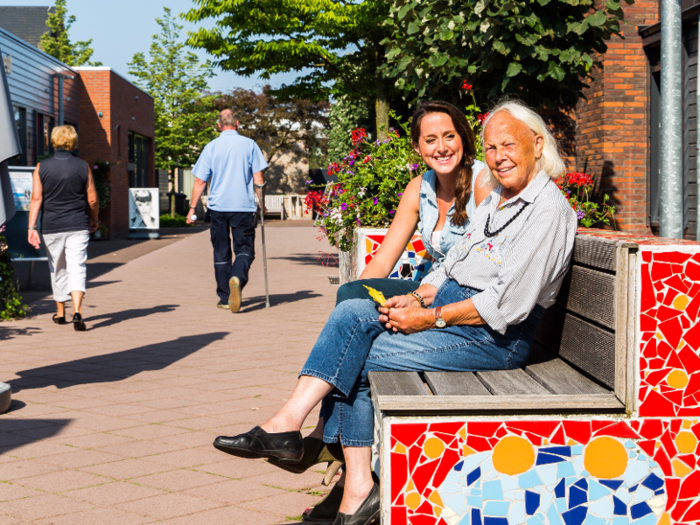
Hogeweyk places a great deal of importance on word choice, van Hal said. The staff members don't treat patients — they care for residents.
"All the residents living here need medical treatment, yes. They all have medication. They all have [an] advanced stage of dementia," van Hal said. "But they are first a person. That's why there are people living here with dementia, and not demented people."
Hogeweyk started in 1993 as your typical hospital-style nursing home. But the staff soon realized there was a better, more humane, way to offer care.
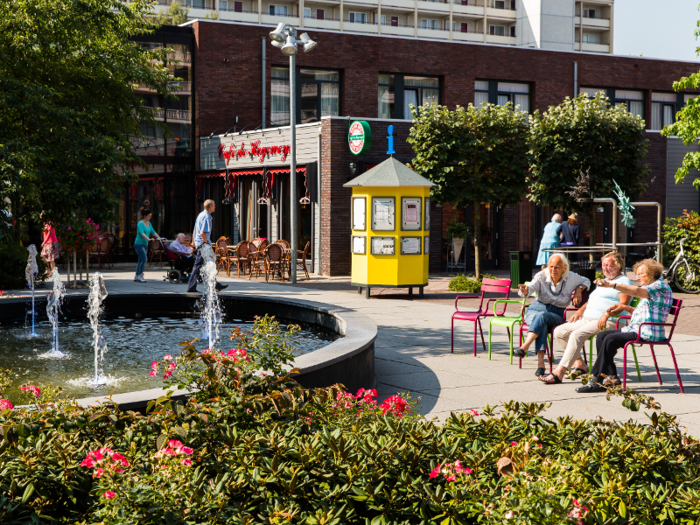
"We said to each other 'What do we want for ourselves and our moms and dads?" van Hal said.
The consensus was that people wanted normalcy, at least to the extent caregivers could provide it. Gradually, Hogeweyk began folding in elements of the outside world. It started by creating 23 houses in four different "lifestyle" categories — cosmopolitan, nature-oriented, well-to-do, and traditional Dutch.
"You have to choose," van Hal said. "Which is the lifestyle according to your preferences?"
Popular Right Now
Popular Keywords
Advertisement